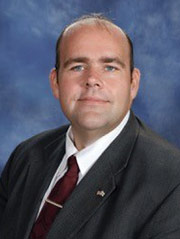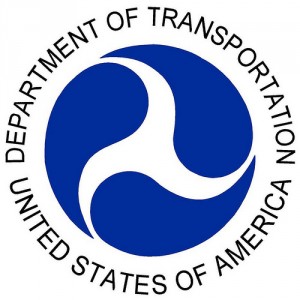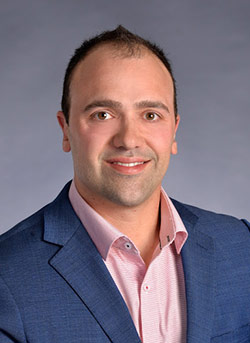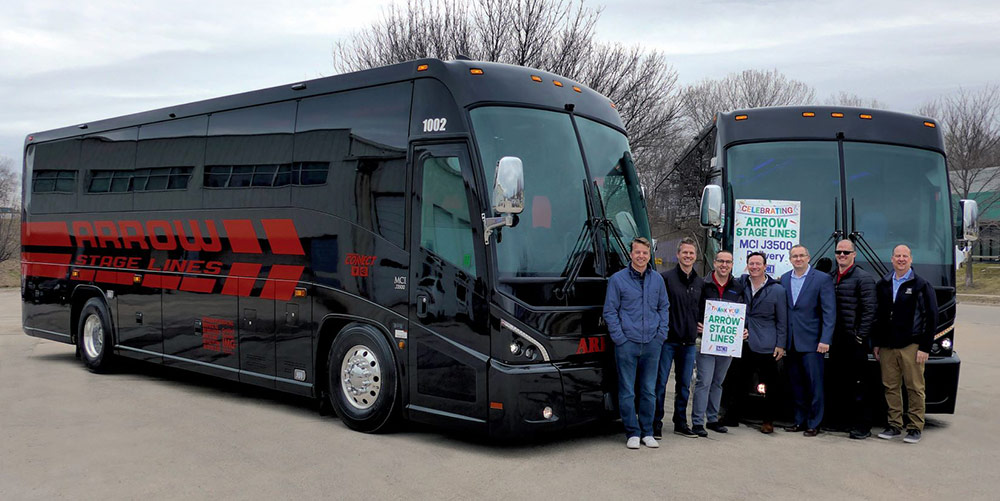- Details
- Category: Industry News
 Joe Guinn of Limo & Bus Compliance Washington, D.C. — On June 29, 2012, the United States Congress passed the Moving Ahead for Progress in the 21st Century Act (MAP-21) and signed it into law July 6 that same year. MAP-21 was passed as a highway spending bill and, as with most spending bills contained several different items.
Joe Guinn of Limo & Bus Compliance Washington, D.C. — On June 29, 2012, the United States Congress passed the Moving Ahead for Progress in the 21st Century Act (MAP-21) and signed it into law July 6 that same year. MAP-21 was passed as a highway spending bill and, as with most spending bills contained several different items.
According to Joe Guinn of Limo & Bus Compliance, one such item is about to have major consequences for the bus industry. Along with provisions for pedestrians, cyclists, and even student loans, Congress mandated that all new CDL drivers and those adding certain endorsements must go through Entry-Level Driver Training (ELDT).
Guinn has clarified what this means for any company with CDL chauffeurs and drivers.
Affected Drivers
ELDT applies to any driver who applies for a new CDL, upgrades their existing class of CDL or adds a passenger, school bus, or hazmat endorsements to their existing license. This applies to all drivers, including both interstate or intrastate operations. The only exception is those who are exempt from skills testing, primarily military members. This exemption will not generally apply to passenger carriers, since many military licenses do not carry a “P” (or passenger) endorsement.

What this means is that, effective February 7, 2020, any chauffeur wanting to either get a license upgrade or add a “P” endorsement will need to complete a course through a certified school. For operators who encourage chauffeurs to get a CDL or regularly hire truck drivers that add a “P” endorsement, this means the cost to hire CDLs may go up substantially.
Training
Going forward, these drivers will need to complete a required curriculum that includes behind-the-wheel training—both “parking lot” and on-road, as well as classroom training for the license type or endorsement they are applying for. Drivers will not be allowed to complete their skills test and get their license until completed. As part of the course, drivers must complete a written test with a score of at least 80 percent and show proficiency behind the wheel. All behind-the-wheel training must be in the same type of vehicle the chauffeur is requesting licensing for.
Once a driving student completes the course, the trainer submits their information to the Federal Motor Carrier Safety Administration (FMCSA). Once the state receives the information, then the driver will be eligible to take their skills test.
Cost
Professional driving courses are already commonly used by the trucking industry: The average cost is $3,000-$7,000 per student. Compare that to the $20-30 it currently costs most driving staff to upgrade their licenses, and we can expect to see an increase in hiring incentives and average pay for chauffeurs.
What to Do
Between now and February 2020, it is highly recommended that companies encourage their eligible chauffeurs to get their CDLs. Companies that frequently have drivers add P endorsements should also plan to hire proactively ahead of the deadline. One of the biggest complaints we hear is the difficulty of hiring CDLs. With the cost to get licensed increasing, expect it to get worse.
Visit fmcsa.dot.gov or dotbuscompliance.com for more information.
[CD0719]
- Details
- Category: Industry News
 MCI Vice President, Regional Sales Eastern Canada Jean-Phillipe Nadeau
Des Plaines, Ill. — Motor Coach Industries (MCI) has announced MCI announced Jean-Phillipe “JP” Nadeau has joined MCI as vice president, regional sales Eastern Canada.
MCI Vice President, Regional Sales Eastern Canada Jean-Phillipe Nadeau
Des Plaines, Ill. — Motor Coach Industries (MCI) has announced MCI announced Jean-Phillipe “JP” Nadeau has joined MCI as vice president, regional sales Eastern Canada.
Nadeau will be responsible for new coach sales as well as the sale of pre-owned coaches to private and public operators in Quebec and the Maritime provinces. He will be based at the Montreal MCI Sales and Service Center and report to MCI Vice President of New Coach Sales Patricia Ziska.
Nadeau joins MCI following a 10-year career in commercial bus sales, where he progressively advanced in his profession selling both new and pre-owned school buses and minibuses.
“JP’s record of accomplishment and values complements the trust and commitment our MCI sales teams offer in building customer and brand loyalty,” said Ziska. “His work selling new and pre-owned coaches will help our customers meet their precise coach needs, whether it’s the industry-leading J4500, the all-new J3500, or our all-accessible MCI D45 CRT LE featuring our patented low entry vestibule design.”
In other news, MCI has delivered three new 2019 J3500 coaches to Omaha, Neb.-based Arrow Stage Lines, a leading charter and tour operator in the Midwestern United States.
Arrow Stage Lines was among the first to place an order for the 35-foot model, paired with the bestselling J4500 as the new MCI J-Series family. The new 2019 MCI J3500 features best-in-class legroom and baggage capacity among all 35-foot coach models, including a 33-foot turning radius for top maneuverability.
Arrow has stationed the new models at its Omaha, Denver, and Kansas City, Mo. locations.
 Arrow Stage Lines team with two 2019 MCI J3500 coaches
Arrow Stage Lines team with two 2019 MCI J3500 coaches
“A smaller-size luxury coach works best in these markets,” explains Arrow Corporate Operations and Marketing Specialist Alex Busskohl, a fourth-generation leader in this family-run business. “We consider the needs of our customers, and we’ve found some smaller groups see more compact coaches as more space-efficient and environmentally friendly.”
Arrow already has sent its new MCI J3500s out on tour as part of its 250-coach fleet that already includes 102 MCI J4500s and 15 35-foot coach models, including those from other manufacturers.
“Our customers enjoy these new 35-foot MCI models,” added Busskohl. “They make the same luxury, top-of-the line coach statement as our J4500s. And we’re very glad MCI now offers a smaller size coach.”
Arrow ordered its new J3500 coaches with 40-seat passenger capacity for additional legroom—the model also comes in a standard 42- or maximum 44-seat configuration—with leatherette seating by Amaya and MCI’s optional variable lighting package that allows operators to customize the interior look of its coaches to suit clients’ brands and preferences.
Arrow tracks and analyzes its data to improve its overall operations and marketing. Busskohl notes that Arrow uses its on-time performance statistics to win new business and that fuel efficiency is an important metric as fuel is the largest operational expense in a fleet Arrow’s size. H says the J3500 is making important strides in fuel efficiency.
“It’s performing well—even a half-point gain in fuel economy is important to us operationally,” adds Busskohl.
Visit mcicoach.com or arrowstagelines.com for more information.
[CD0719]
- Details
- Category: Industry News
Oakdale, Minn. — The Minnesota Chauffeured Transportation Association (MCTA) will be hosting a golf tournament August 4 at Oak Marsh Golf Course to benefit the association.
The day will begin with an 11:30 a.m. registration and lunch, followed by the sporting event’s beginning with a 12:30 p.m. shotgun start and a happy hour with appetizers and prizes at 4:30 p.m.
 MCTA will hold its golf classic at the Oak Marsh Golf Course August 4
MCTA will hold its golf classic at the Oak Marsh Golf Course August 4
While the price per golfer is $125 (which includes 18 holes, cart, lunch, happy hour, prizes, and coupon for free 18-hole green fee), a foursome is discounted at $480. Those who wish to attend just lunch and happy hour can pay $50 for each.
MCTA is currently accepting gift and prize donations, and those who wish to sponsor the event have numerous levels to choose from:
Event host sponsor ($1,200): The most prominent company recognition on all promotional materials including electronic invitations, event program and all signage, a hole sponsorship, recognition on golf carts, four golfers (with lunch and happy, and an opportunity to speak at lunch and at the happy hour prize/award presentation.
Lunch sponsor ($800): Company recognition on all promotional materials including electronic invitations, event program and all signage, a hole sponsorship, recognition on golf carts, two golfers (with lunch and happy hour), and an opportunity to speak at lunch.
Happy Hour sponsor ($500): Company recognition on all promotional materials including electronic invitations, event program and all signage, a hole sponsorship, recognition on golf carts, one golfer (with lunch and happy hour), and an opportunity to speak at happy hour.
Cart sponsor ($300): Company recognition on all promotional materials including electronic invitations, event program, and all signage, a hole sponsorship, the most prominent recognition on golf carts, one golfer (with lunch and happy hour).
Prize sponsor ($250): Company recognition on promotional materials such as the event program, all signage, and an opportunity to speak at award/prize presentation.
Hole sponsor ($200): Company recognition on promotional materials such as the event program, and signage recognition on a specific golf hole with the opportunity to appear at the hole to visit with players during the round.
To register, sponsor, donate gifts and/or prizes, or find out more, contact MCTA staff Leslie Rosedahl at LeslieRosedahl@gmail.com or by calling 651.353.1818.
Visit mnlimo.org for more information.
[CD0719]

